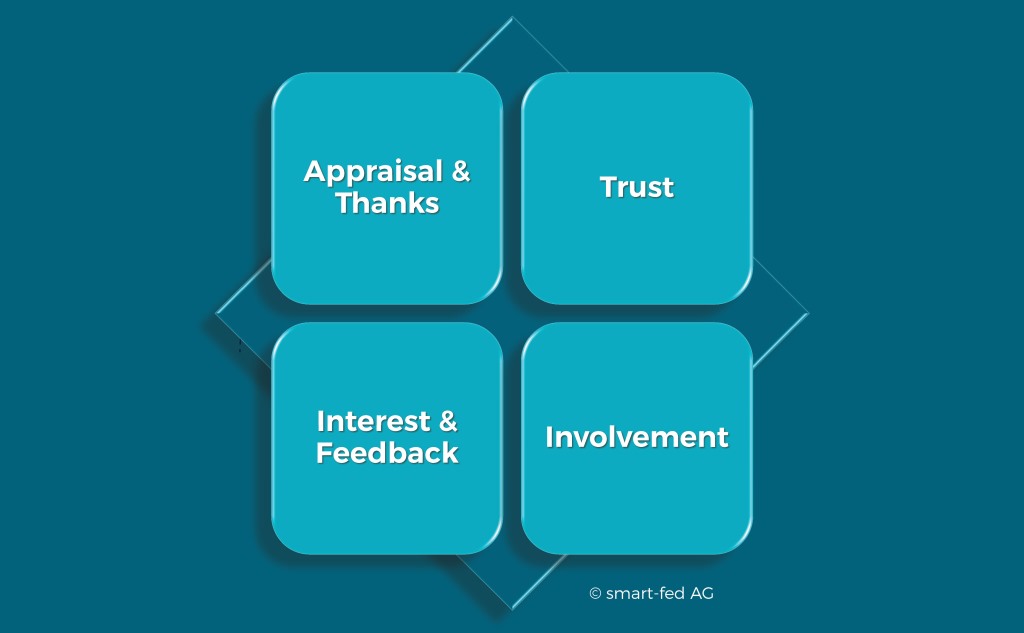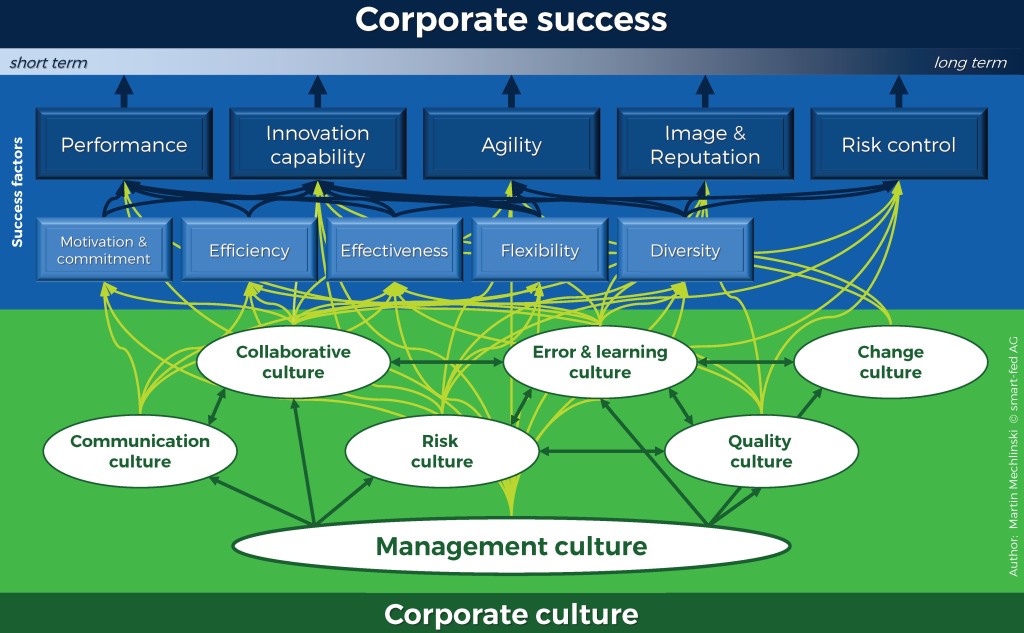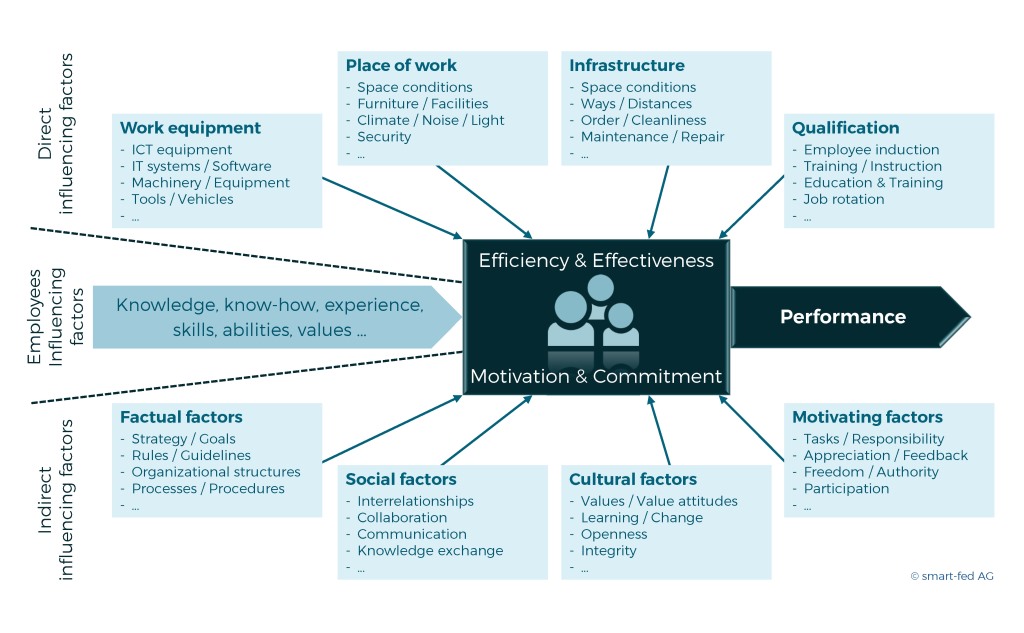Toxic corporate culture – frosty atmosphere?
The responsibility of the management and supervisory bodies*
*Supervisory boards, boards of directors, foundation boards, authorities, etc.
Almost every day we read about companies and organizations where a toxic culture has built up over the years. And one wonders how it is possible that management and supervisory bodies were unable or unwilling to recognize this in time.
Well, we humans have a somewhat unpleasant habit. When we see signs of problems and conflicts, we like to look away first. If only out of fear that we our-selves will become part of the problem or conflict.
But it is precisely this behaviour that is often fatal for companies and organizations. Because if the problems and conflicts are not just marginal or temporary, they spread like a cancer throughout the organization.
Looking away is not an option
The fact that people often look the other way harbors immense dangers. In extreme cases, it can even herald the beginning of the end for a company. Poor cooperation and communication quickly have an impact on efficiency, effectiveness and performance. The resulting damage to image and reputation can have long-lasting effects.
For this reason, it is downright negligent when management and supervisory bodies ignore deep-seated problems and conflicts in organizations over long periods of time. But why does it happen again and again?
A toxic corporate culture usually develops over years. It begins with the behavior and actions of individuals or groups of people. Initially, it is insidious and hidden in everyday life, but over time it becomes more and more open and visible to everyone in the organization. This is the latest point at which management should intervene. But they don’t because this is often associated with unpleasant and painful decisions, or because managers themselves are part of the problem or conflict.
At this point, the supervisory bodies would be called upon. However, these bodies rarely have the necessary and, above all, reliable information. This is because the classic method of employee surveys which should provide the information, has various shortcomings and weaknesses in this context.
Employee surveys – why they fail
1. Employee surveys have always been geared towards measuring employee commitment or employee satisfaction. A targeted examination of the corporate culture only takes place every few years, if at all.
2. Questions on critical topics are often avoided in surveys. The focus is too often consciously or unconsciously on the interest in good survey results.
3. Once a corporate culture has become toxic, you can no longer expect authentic feedback in surveys. In such an environment, every employee will think twice about giving open and honest feedback.
© pixabay / Picture: alanajordan
4. With a few exceptions, survey response rates have been falling for years. One of the reasons is that young people in particular are no longer willing to take part in surveys that exclude the really burning issues.
The alternative
For these reasons, the SMART FED feedback portal pursues a consistently new approach. It differs from all existing forms of employee surveys in the following ways:
- No expensive survey projects.
- Reliable data, as it is self-determined and authentic feedback, without manipulation through questions.
- Actual data, as feedback can be given immediately if something changes in the organization.
- Comprehensive data, as no topics are excluded.
- Differentiated data, as this is structured and specifically named feedback.
⇒ Author: Martin Mechlinski / SMART FED
Toxic corporate culture – frosty atmosphere?
The responsibility of the management and supervisory bodies*
*Supervisory boards, boards of directors, foundation boards, authorities, etc.
© pixabay / Picture: alanajordan
Almost every day we read about companies and organizations where a toxic culture has built up over the years. And one wonders how it is possible that management and supervisory bodies were unable or unwilling to recognize this in time.
Well, we humans have a somewhat unpleasant habit. When we see signs of problems and conflicts, we like to look away first. If only out of fear that we our-selves will become part of the problem or conflict.
But it is precisely this behaviour that is often fatal for companies and organizations. Because if the problems and conflicts are not just marginal or temporary, they spread like a cancer throughout the organization.
Looking away is not an option
The fact that people often look the other way harbors immense dangers. In extreme cases, it can even herald the beginning of the end for a company. Poor cooperation and communication quickly have an impact on efficiency, effectiveness and performance. The resulting damage to image and reputation can have long-lasting effects.
For this reason, it is downright negligent when management and supervisory bodies ignore deep-seated problems and conflicts in organizations over long periods of time. But why does it happen again and again?
A toxic corporate culture usually develops over years. It begins with the behavior and actions of individuals or groups of people. Initially, it is insidious and hidden in everyday life, but over time it becomes more and more open and visible to everyone in the organization. This is the latest point at which management should intervene. But they don’t because this is often associated with unpleasant and painful decisions, or because managers themselves are part of the problem or conflict.
At this point, the supervisory bodies would be called upon. However, these bodies rarely have the necessary and, above all, reliable information. This is because the classic method of employee surveys which should provide the information, has various shortcomings and weaknesses in this context.
Employee surveys – why they fail
1. Employee surveys have always been geared towards measuring employee commitment or employee satisfaction. A targeted examination of the corporate culture only takes place every few years, if at all.
2. Questions on critical topics are often avoided in surveys. The focus is too often consciously or unconsciously on the interest in good survey results.
3. Once a corporate culture has become toxic, you can no longer expect authentic feedback in surveys. In such an environment, every employee will think twice about giving open and honest feedback.
4. With a few exceptions, survey response rates have been falling for years. One of the reasons is that young people in particular are no longer willing to take part in surveys that exclude the really burning issues.
The alternative
For these reasons, the SMART FED feedback portal pursues a consistently new approach. It differs from all existing forms of employee surveys in the following ways:
- No expensive survey projects.
- Reliable data, as it is self-determined and authentic feedback, without manipulation through questions.
- Actual data, as feedback can be given immediately if something changes in the organization.
- Comprehensive data, as no topics are excluded.
- Differentiated data, as this is structured and specifically named feedback.
⇒ Author: Martin Mechlinski / SMART FED








